Error: Gemini API request failed (Code: 503). Message: The model is overloaded. Please try again later.
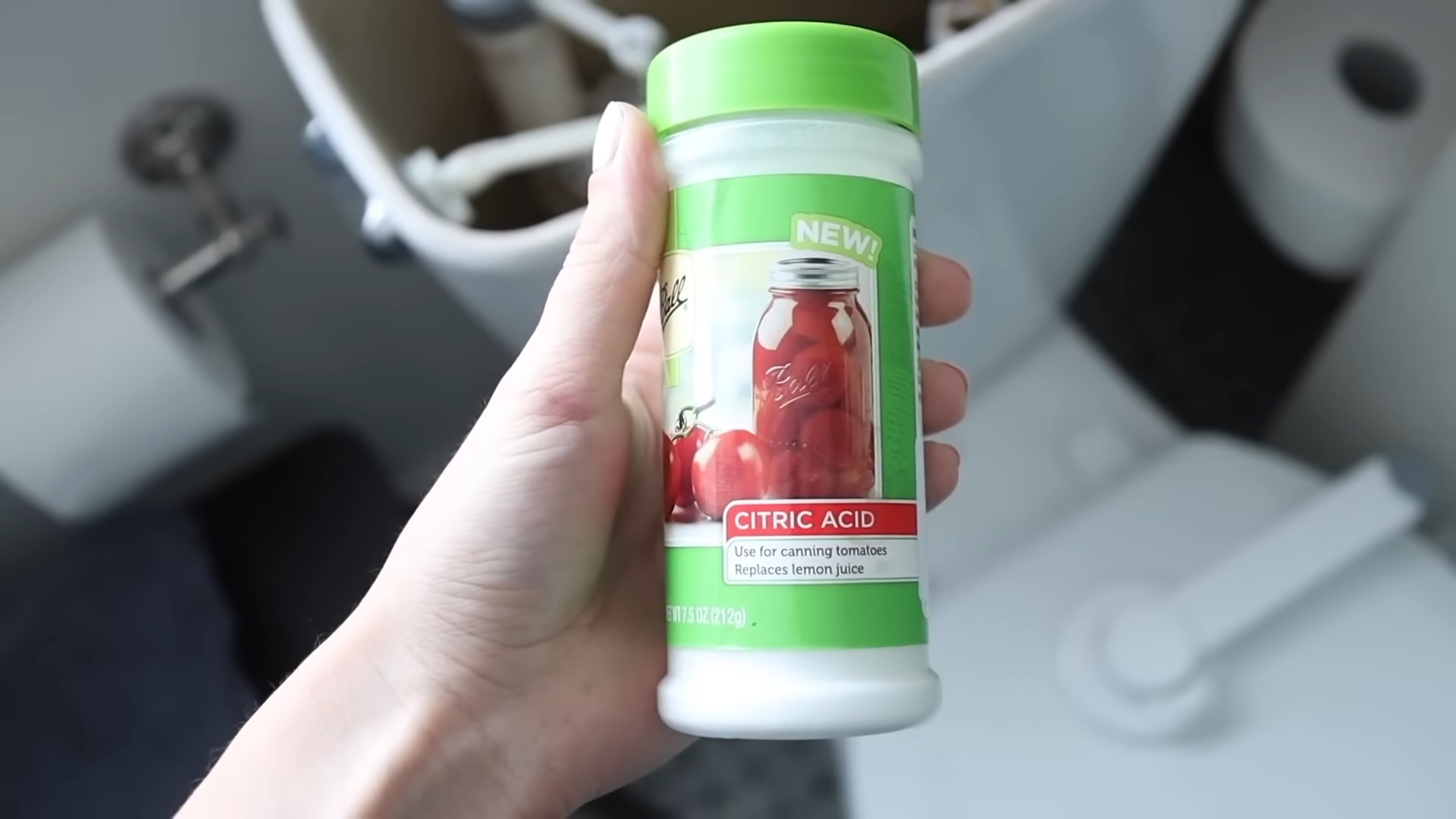
Citric Acid Cleaning Hacks: Your Ultimate DIY Guide
Hey there, fellow cleaning enthusiasts! I’m so excited to share my favorite citric acid cleaning hacks with you. Citric acid is a powerhouse natural cleaner, and it’s way more versatile than you might think. Plus, it’s eco-friendly and budget-friendly – a win-win! Let’s dive into how you can use this amazing ingredient to tackle some of the toughest cleaning challenges around your home.
What is Citric Acid and Why Use It?
Citric acid is a naturally occurring acid found in citrus fruits like lemons and limes. It’s a fantastic alternative to harsh chemical cleaners because it’s biodegradable, non-toxic, and effective at removing hard water stains, rust, soap scum, and general grime. I love using it because it leaves my home smelling fresh and clean without any lingering chemical odors.
Getting Started: Safety First!
Before we jump into the hacks, let’s talk safety. While citric acid is generally safe, it’s still an acid, so you should always:
* Wear gloves: Protect your hands from potential irritation, especially if you have sensitive skin.
* Avoid contact with eyes: If citric acid gets in your eyes, rinse immediately with plenty of water.
* Test on an inconspicuous area: Before cleaning an entire surface, test a small, hidden spot to ensure it doesn’t damage or discolor the material.
* Don’t mix with bleach: Mixing citric acid with bleach can create harmful chlorine gas. Always use them separately.
* Keep out of reach of children and pets: Store citric acid in a safe place where little ones can’t access it.
Hack 1: Descaling Your Kettle and Coffee Maker
Hard water can wreak havoc on your kettle and coffee maker, leaving behind unsightly mineral deposits. Citric acid is my go-to solution for descaling!
What you’ll need:
* 1-2 tablespoons of citric acid
* Water
Step-by-step instructions:
1. Prepare the solution: Fill your kettle or coffee maker reservoir with water. Add 1-2 tablespoons of citric acid, depending on the severity of the scale buildup. For a heavily scaled kettle, I usually go with 2 tablespoons.
2. Boil or run the cycle: For a kettle, boil the solution. For a coffee maker, run a full brewing cycle without coffee grounds.
3. Let it sit: After boiling or running the cycle, let the solution sit for about 30 minutes to an hour. This allows the citric acid to dissolve the mineral deposits. For really stubborn scale, I sometimes let it sit overnight.
4. Rinse thoroughly: Empty the kettle or coffee maker and rinse it thoroughly with fresh water several times until all traces of citric acid are gone. You don’t want your next cup of tea or coffee to taste lemony!
5. Repeat if necessary: If you still see some scale buildup, repeat the process.
Hack 2: Cleaning Your Dishwasher
A clean dishwasher means cleaner dishes! Citric acid helps remove food residue, hard water stains, and that funky smell that can sometimes linger.
What you’ll need:
* 2-3 tablespoons of citric acid
Step-by-step instructions:
1. Empty the dishwasher: Make sure your dishwasher is completely empty.
2. Add citric acid: Pour 2-3 tablespoons of citric acid into the detergent dispenser.
3. Run a hot cycle: Run a normal or heavy-duty cycle with hot water.
4. Optional: For extra cleaning power, you can sprinkle a tablespoon of citric acid on the bottom of the dishwasher before running the cycle.
5. Enjoy your sparkling clean dishwasher!
Hack 3: Removing Hard Water Stains from Shower Heads and Faucets
Hard water stains can make your shower heads and faucets look dull and grimy. Citric acid to the rescue!
What you’ll need:
* Citric acid
* Water
* Spray bottle or plastic bag
* Cloth or sponge
Step-by-step instructions:
1. Prepare the solution: Mix 1-2 tablespoons of citric acid with 1 cup of warm water in a spray bottle. Alternatively, you can use a plastic bag for soaking.
2. Apply the solution: For shower heads, either spray the solution directly onto the shower head or fill a plastic bag with the solution and secure it around the shower head with a rubber band, ensuring the shower head is submerged. For faucets, spray the solution directly onto the faucet.
3. Let it soak: Let the solution soak for at least 30 minutes, or even longer for stubborn stains. I often leave it overnight for really tough buildup.
4. Scrub and rinse: After soaking, scrub the shower head or faucet with a cloth or sponge to remove any remaining stains. Rinse thoroughly with water.
5. Dry and admire: Dry the shower head or faucet with a clean cloth and admire your sparkling clean fixtures!
Hack 4: Cleaning Toilet Bowls
Citric acid can help remove hard water stains and mineral deposits from your toilet bowl, leaving it fresh and clean.
What you’ll need:
* 2-3 tablespoons of citric acid
Step-by-step instructions:
1. Sprinkle citric acid: Sprinkle 2-3 tablespoons of citric acid directly into the toilet bowl.
2. Let it sit: Let the citric acid sit for at least 30 minutes, or overnight for stubborn stains.
3. Scrub and flush: Scrub the toilet bowl with a toilet brush to loosen any remaining stains. Flush the toilet.
4. Repeat if necessary: If you still see some stains, repeat the process.
Hack 5: Removing Rust Stains
Rust stains can be a real eyesore, but citric acid can help dissolve them.
What you’ll need:
* Citric acid
* Water
* Spray bottle or paste
* Cloth or sponge
Step-by-step instructions:
1. Prepare the solution: For light rust stains, mix 1-2 tablespoons of citric acid with 1 cup of water in a spray bottle. For heavier rust stains, make a paste by mixing citric acid with just enough water to form a thick consistency.
2. Apply the solution: Spray the solution onto the rust stain or apply the paste directly to the stain.
3. Let it sit: Let the solution or paste sit for at least 30 minutes, or longer for stubborn stains. I often leave the paste on overnight for really tough rust.
4. Scrub and rinse: Scrub the area with a cloth or sponge to remove the rust. Rinse thoroughly with water.
5. Repeat if necessary: If you still see some rust, repeat the process.
Hack 6: Cleaning Burnt Food from Pots and Pans
Burnt food stuck to your pots and pans? Don’t despair! Citric acid can help loosen the burnt residue.
What you’ll need:
* 1-2 tablespoons of citric acid
* Water
Step-by-step instructions:
1. Fill the pot or pan: Fill the pot or pan with enough water to cover the burnt food.
2. Add citric acid: Add 1-2 tablespoons of citric acid to the water.
3. Boil the solution: Bring the solution to a boil and let it simmer for about 15-20 minutes.
4. Let it cool: Let the solution cool down before attempting to scrub the pot or pan.
5. Scrub and rinse: Scrub the pot or pan with a sponge or scouring pad to remove the burnt food. Rinse thoroughly with water.
Hack 7: Freshening Up Your Laundry
Citric acid can act as a natural laundry booster, helping to brighten whites and remove odors.
What you’ll need:
* 1-2 tablespoons of citric acid
Step-by-step instructions:
1. Add to the washing machine: Add 1-2 tablespoons of citric acid to your washing machine along with your regular detergent.
2. Run the wash cycle: Run your normal wash cycle.
3. Enjoy fresher, brighter laundry!
Hack 8: Cleaning Cutting Boards
Cutting boards can harbor bacteria and odors. Citric acid can help sanitize and deodorize them.
What you’ll need:
* Citric acid
* Water
* Spray bottle or paste
* Cloth or sponge
Step-by-step instructions:
1. Prepare the solution: Mix 1 tablespoon of citric acid with 1 cup of water in a spray bottle. Alternatively, you can make a paste by mixing citric acid with a little water.
2. Apply
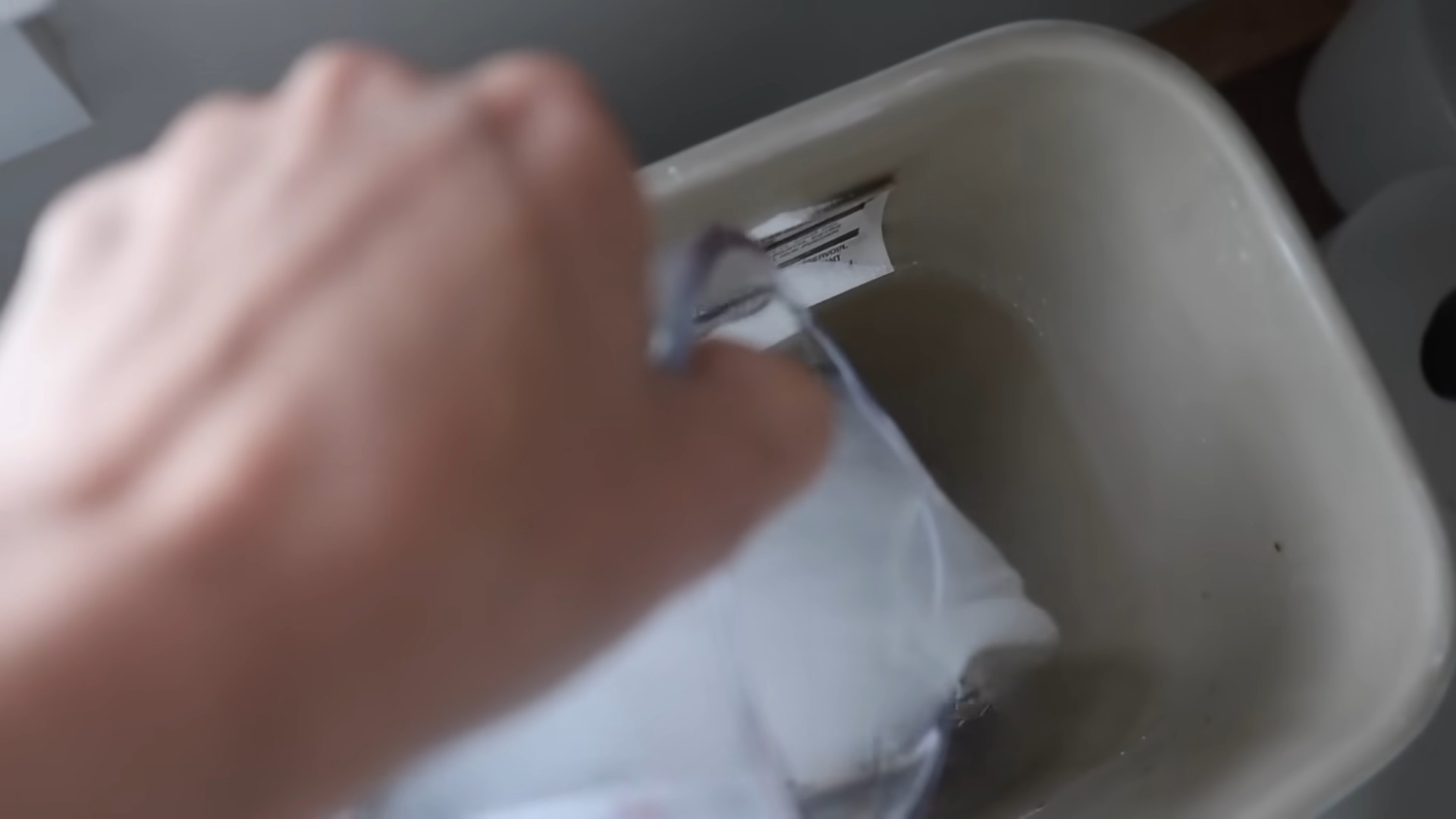
Conclusion
So, there you have it! Unlocking the power of citric acid for a sparkling clean home is not just a trend; it’s a revolution in eco-friendly and effective cleaning. We’ve explored how this readily available, inexpensive powder can tackle everything from stubborn hard water stains in your bathroom to grimy buildup in your kitchen appliances. The versatility of citric acid is truly remarkable, making it an indispensable tool in your cleaning arsenal.
Why is this DIY trick a must-try? Because it’s a game-changer. It’s a safer, healthier alternative to harsh chemical cleaners, reducing your exposure to potentially harmful toxins. It’s cost-effective, saving you money on expensive cleaning products. And it’s environmentally friendly, minimizing your impact on the planet. What’s not to love?
But the beauty of this DIY approach lies in its adaptability. Feel free to experiment with different concentrations of citric acid solution to find what works best for your specific cleaning needs. For instance, for heavily soiled areas, you might want to increase the concentration slightly. Or, if you’re cleaning delicate surfaces, start with a weaker solution to avoid any potential damage.
Consider adding a few drops of your favorite essential oil to your citric acid cleaning solution for a pleasant, natural fragrance. Lavender, lemon, and tea tree oil are all excellent choices that not only smell great but also offer additional antibacterial properties. You can also infuse your citric acid solution with herbs like rosemary or thyme for a unique and refreshing scent.
Another variation to explore is using citric acid in combination with other natural cleaning agents. For example, mixing citric acid with baking soda can create a powerful fizzing action that helps to loosen stubborn grime and dirt. Just be sure to use caution when mixing these two ingredients, as the reaction can produce carbon dioxide gas. Always mix in a well-ventilated area and avoid using in a closed container.
Don’t limit yourself to the cleaning applications we’ve discussed. Citric acid can also be used to remove rust stains from clothing, brighten dull laundry, and even clean your dishwasher. The possibilities are endless!
We wholeheartedly encourage you to try these citric acid cleaning hacks and experience the difference for yourself. We’re confident that you’ll be amazed by the results. Once you’ve given it a go, we’d love to hear about your experience. Share your tips, tricks, and before-and-after photos with us in the comments section below. Let’s build a community of eco-conscious cleaners who are passionate about using natural solutions to create a healthy and sparkling home. Your insights could help others discover the incredible power of citric acid and make their cleaning routines more effective and sustainable. Let’s spread the word and make our homes, and our planet, a little bit cleaner, one citric acid solution at a time. Embrace the power of citric acid cleaning hacks and transform your home cleaning routine today!
FAQ
What exactly is citric acid, and is it safe to use around my family and pets?
Citric acid is a naturally occurring organic acid found in citrus fruits like lemons and limes. It’s a weak acid, making it a relatively safe and effective cleaning agent. While generally safe, it’s still important to exercise caution. Keep citric acid powder and solutions out of reach of children and pets. Avoid direct contact with eyes and skin. If contact occurs, rinse thoroughly with water. While citric acid is food-grade, it’s not intended for consumption in large quantities. When using it for cleaning, ensure surfaces are properly rinsed, especially those that come into contact with food.
Can I use citric acid on all surfaces? Are there any surfaces I should avoid?
While citric acid is versatile, it’s not suitable for all surfaces. Avoid using it on natural stone surfaces like marble, granite, and limestone, as it can etch or damage them. It’s also best to avoid using it on aluminum, as it can cause discoloration. Always test a small, inconspicuous area first before applying citric acid to a larger surface, especially if you’re unsure about its compatibility. For delicate surfaces like painted walls or antique furniture, use a diluted solution and test in an hidden area first.
How do I make a basic citric acid cleaning solution? What’s the ideal ratio of citric acid to water?
A basic citric acid cleaning solution is easy to make. Start with a ratio of 1-2 tablespoons of citric acid powder per cup of warm water. Dissolve the citric acid completely in the water. You can adjust the concentration depending on the cleaning task. For light cleaning, use a weaker solution. For tougher stains, use a stronger solution. Always start with a weaker solution and increase the concentration as needed. Remember to label your spray bottle clearly to avoid confusion.
How long does citric acid take to work on stains and grime?
The amount of time it takes for citric acid to work depends on the severity of the stain or grime. For light stains, a few minutes of soaking or dwell time may be sufficient. For tougher stains, you may need to let the citric acid solution sit for 30 minutes or even longer. You can also scrub the area gently with a brush or sponge to help loosen the grime. After the dwell time, rinse the surface thoroughly with water.
Can I mix citric acid with other cleaning agents like bleach or vinegar?
No, it’s generally not recommended to mix citric acid with other cleaning agents, especially bleach. Mixing citric acid with bleach can create harmful chlorine gas, which is toxic and can cause respiratory problems. Mixing citric acid with vinegar can also create unwanted chemical reactions. It’s best to use citric acid on its own or in combination with other natural cleaning agents like baking soda or essential oils.
Where can I buy citric acid? Is it readily available?
Citric acid is readily available and can be purchased at most grocery stores, health food stores, and online retailers. Look for it in the baking aisle or the cleaning supplies section. You can also find it in bulk at some online retailers. When purchasing citric acid, make sure to choose a food-grade product if you plan to use it for cleaning food-related items.
How should I store citric acid powder and solutions?
Store citric acid powder in a cool, dry place in an airtight container. This will help prevent it from clumping or absorbing moisture. Store citric acid solutions in a labeled spray bottle or container. Keep both the powder and solutions out of reach of children and pets.
Is citric acid safe for septic systems?
Yes, citric acid is generally considered safe for septic systems. It’s a natural substance that breaks down easily and doesn’t contain harsh chemicals that can harm the beneficial bacteria in your septic tank. However, it’s always a good idea to use citric acid in moderation and avoid pouring large quantities down the drain at once.
Can citric acid remove rust stains from clothing? How do I do it?
Yes, citric acid can be effective at removing rust stains from clothing. To do so, make a paste of citric acid and water. Apply the paste to the rust stain and let it sit for 30 minutes to an hour. Then, rinse the garment thoroughly with water and launder as usual. You may need to repeat the process for stubborn stains. Always test the citric acid paste on a small, inconspicuous area of the garment first to ensure it doesn’t damage the fabric.
What are some other creative uses for citric acid besides cleaning?
Besides cleaning, citric acid has several other creative uses. It can be used as a food preservative, a flavor enhancer, and a pH adjuster in various food and beverage products. It can also be used in bath bombs, homemade cosmetics, and even as a natural hair rinse to remove buildup and add shine. The possibilities are endless!


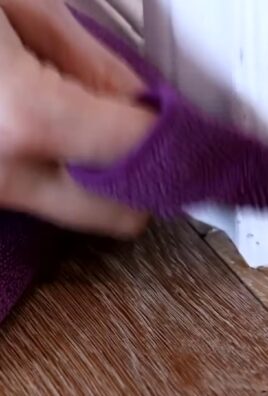
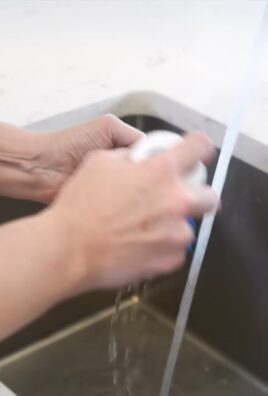
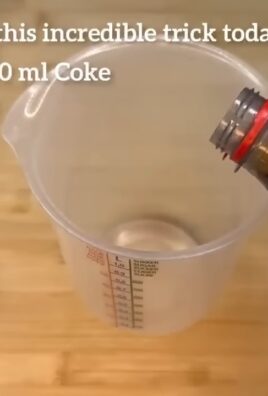
Leave a Comment